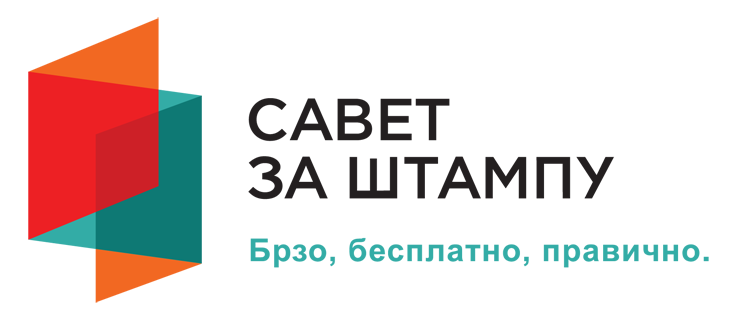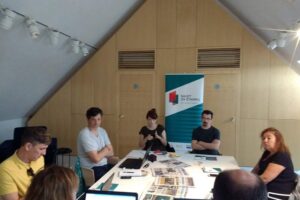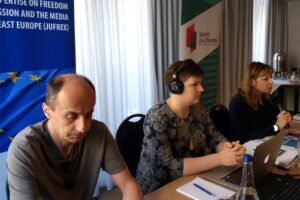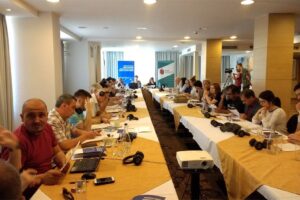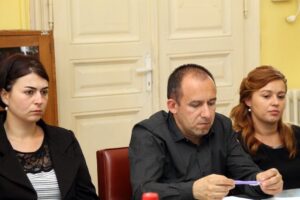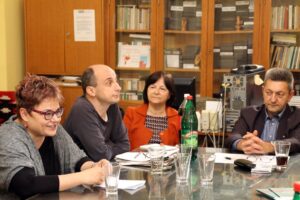The number of violations of the Code in Serbian media doubled
(Danas) Eight daily newspapers in Serbia last year made a total of 3,615 violations of the Code of Journalists of Serbia, and only from August to December, it was said on the presentation of media monitoring by the Press Council
Most of the offenses were recorded in the newspaper Alo – 929. The second place is held by the Serbian telegraph with 769, then Kurir with 701, Informer with 600, Blic 307 and Večernje novosti 216.
The smallest number of offenses were made by Politika and Danas, where there are 36 and 57 articles in which the Code of Ethics has been violated one or more times.
“This year we have twice as many offenses as last year. This is a graphic representation of the collapse of the respect of the journalistic code “, said journalist and expert of the Press Council Tamara Skrozza today in the UNS Press Center.
“All graphs and all statistics are meaningless compared to the front pages of today’s newspapers. The fact that the genitals of Jelena Karleusa are the only news on the front page of today’s issue of the Srpski Telegraf, Kurir and Informer cancels out all issues that we came to talk about today, and on the other hand demonstrates what statistics have already shown – we are heading towards a new low point, as this is lower from the bottom,” Skrozza said.
Journalist and Press Council expert Petar Jeremic believes that this should wake up the Ministry of Culture because a legal violation is in question, a presentation of pornographic content on the cover page of three daily newspapers.
In the period under review, Section 2, Chapter 1, was most often violated, stating that comments and assumptions can not be taken as facts and Section 3, Chapter 4, concerning the violation of the right to presumption of innocence.
“It often happens that there is something on the front page that does not exist in the newspaper at all – there is no text under this heading. On the other hand, columnists frequently express comment and opinions in their articles which they present as facts, “Jeremic explained.
A large number of violations also apply to Chapter 7, Section 4, which requires journalists to pay special attention to the safety of underage children, especially when it comes to discovering the identity of children.
“If you have the initials of the father and the abused child, and in the article you can see the photo of the house, it is a violation. Perhaps
a reader in Belgrade does not know, but someone who lives in that place, if he has not already heard, is now sure who it is, “explained Jeremic.
Media often violate the rights of minor children of public figures, such as the child of Natasha Beckvalac and Danilo Ikodinovic or the child Ana Nikolic and Stefan Djuric Rasta. From August to December, eight daily newspapers published 386 articles about juveniles which violated the Code.
“A little boy a few months old, thanks to his mother, became a public star, without knowing or understand it. In a TV reality show, it can be “beeped”, somehow hidden, but not in newspapers. Why does not anybody respond? What will that child think when it goggles own name at the age of 16,” said Skrozza.
For the fourth year, the Press Council monitors the compliance of the Serbian Journalists Code by eight daily newspapers with national coverage.
https://www.danas.rs/drustvo/dupliran-broj-prekrsaja-kodeksa-u-srpskim-medijima/
